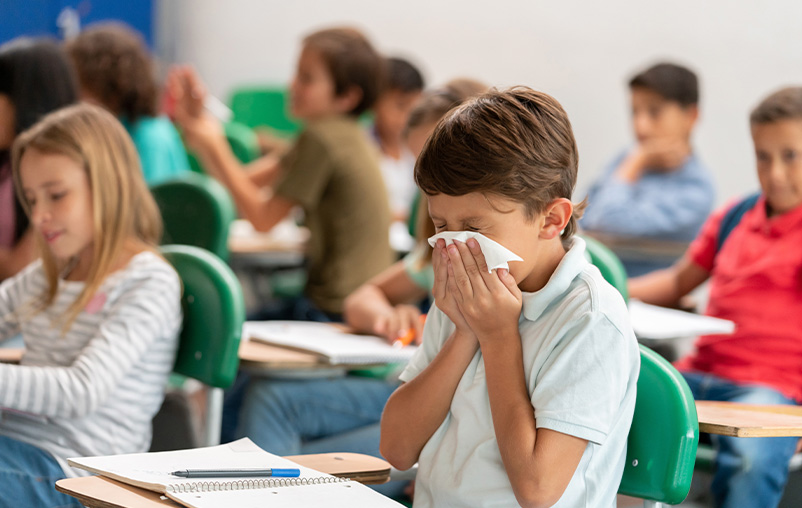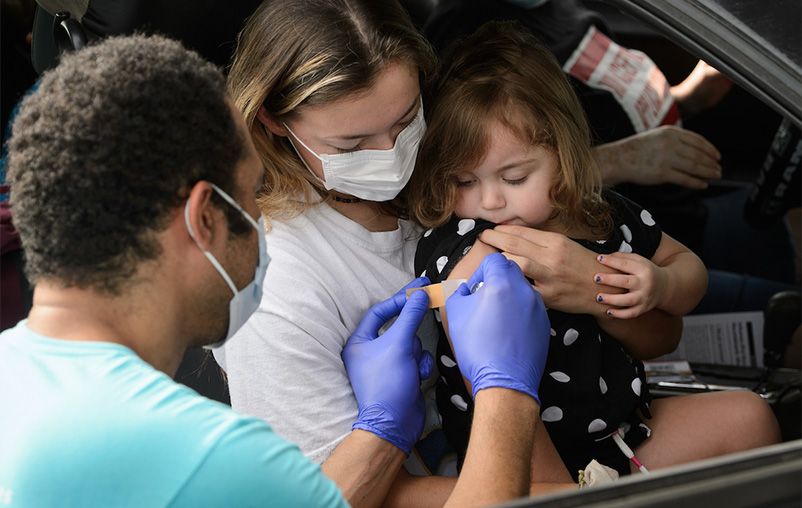We are seeing a significant increase in COVID-19 patients in hospitals across our community. The vast majority of those hospitalized have not been vaccinated against COVID-19 and are getting sick with the delta variant. This latest wave is very much the “pandemic of the unvaccinated,” to quote Rochelle Walensky, director of the Centers for Disease Control.
What is the delta variant?
The delta variant is the most contagious version of COVID-19 and spreads two to three times faster than the original virus. Right now, 80% of COVID cases in the U.S. are caused by this variant.
"We know that the delta variant ... is currently surging in pockets of the country with low vaccination rates," Walensky said. "We also know that our authorized vaccines prevent severe disease, hospitalization and death from the delta variant."
We also know that the COVID vaccines help protect you from the delta variant. According to Public Health England, fully vaccinated people are 88% protected from the disease and 96% protected from hospitalization.
Vaccines save lives and are the only way out of this pandemic. Please encourage vaccination among your family and friends. These conversations are not easy, but studies show that vaccine hesitancy can be overcome by trusted health care providers, friends and family members.
Will we need booster shots?
As of right now, both the World Health Organization and the Centers for Disease Control do not believe we will need booster vaccinations this year. Much of the world remains unvaccinated. We are all in a better position if more people worldwide are vaccinated, thus slowing the ability of the virus to create new variants.
Who is getting sick right now?
Areas with low vaccination rates are most at risk. A Cleveland Clinic study found more than 99% of those currently hospitalized with COVID-19 were unvaccinated. When asked if people who are vaccinated should be doing anything different than they normally would on Sunday, U.S. Surgeon General Dr. Vivek Murthy said that even with a breakthrough infection "which, again, happens in a very small minority of people ꟷ it's likely to be a mild or asymptomatic infection."
Have the masking guidelines changed now that the delta variant has spread so widely?
Yes. The Centers for Disease Control released new guidelines in high-risk exposure settings, such as health care, household contacts and more.
The American Academy of Pediatrics on Monday announced that it encourages in-person learning with masks for all ages during the 2021-22 school year.
How can we start the conversation?
We realize this can be challenging, but it is critical to make a strong recommendation for vaccination with your loved ones. Research has shown that the vaccine hesitant will listen to those whom they trust: family, friends and health care providers. Empathy and patience are key in these discussions. Please listen to their concerns. Reassure them that each of the three vaccines available are safe and effective.
The Centers for Disease Control has a toolkit to help refute misinformation and share facts.
Some suggestions from the CDC toolkit include:
- Lead with listening to your loved one’s concerns. Actively hear their point of view. Be non-judgmental.
- Use open-ended questions to promote discussion. Paraphrase what they have said to ensure you understand their point of view. For example: “I heard that you are concerned the vaccine is still experimental. How can I reassure you that it is safe to vaccinate?”
- Use simple, clear language. The Centers for Disease Control has scripts to review on common vaccine concerns. This includes answers to vaccine safety, speed of its development, natural immunity v. vaccine immunity, common side effects, unknown long-term effects to the vaccine.
- Give a strong recommendation. Be polite, but firm: “I recommend the COVID-19 vaccination because. . .”
- It will protect your young children who can’t be vaccinated yet.
- It will protect your older parents, who you visit frequently.
- It will protect your fellow churchgoers, some of whom may be immunocompromised.
- It will allow you to go back to normal activities like concerts and travel.
- It will minimize the chances of catching COVID-19, which has caused long-term damage to the lungs, heart and nervous system in healthy people. Even people your age who survive COVID-19 now have long-term health issues to manage. Why take that risk?
Use your knowledge of what matters to your loved one to offer concrete examples that can motivate them to be vaccinated.
We need to push back against the misinformation spreading on social media and by word of mouth.
Remind those you love that you have been vaccinated with no long-term effects, millions of others have been safely vaccinated, and that there are millions of children who are unable to be vaccinated before the start of the school year.




